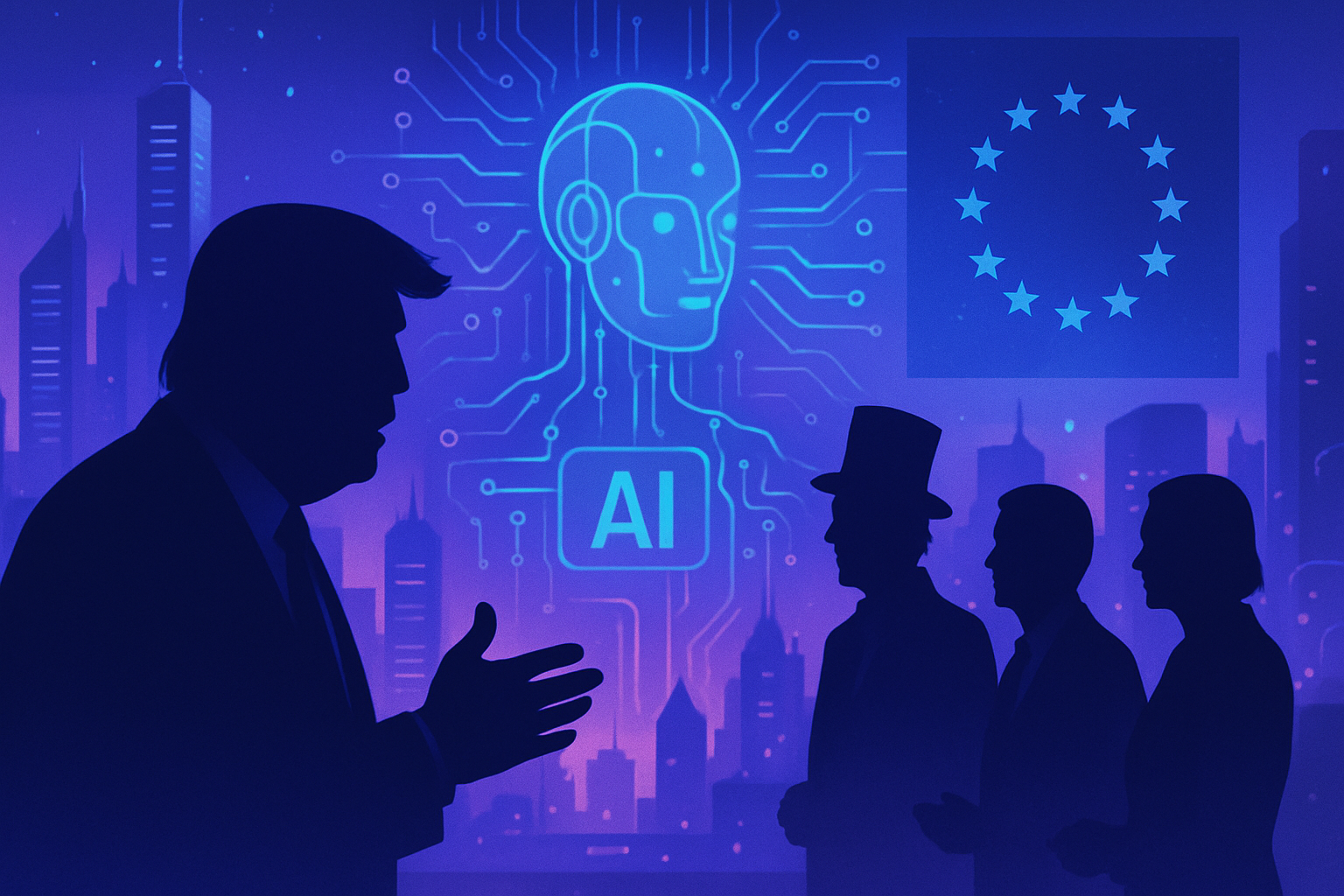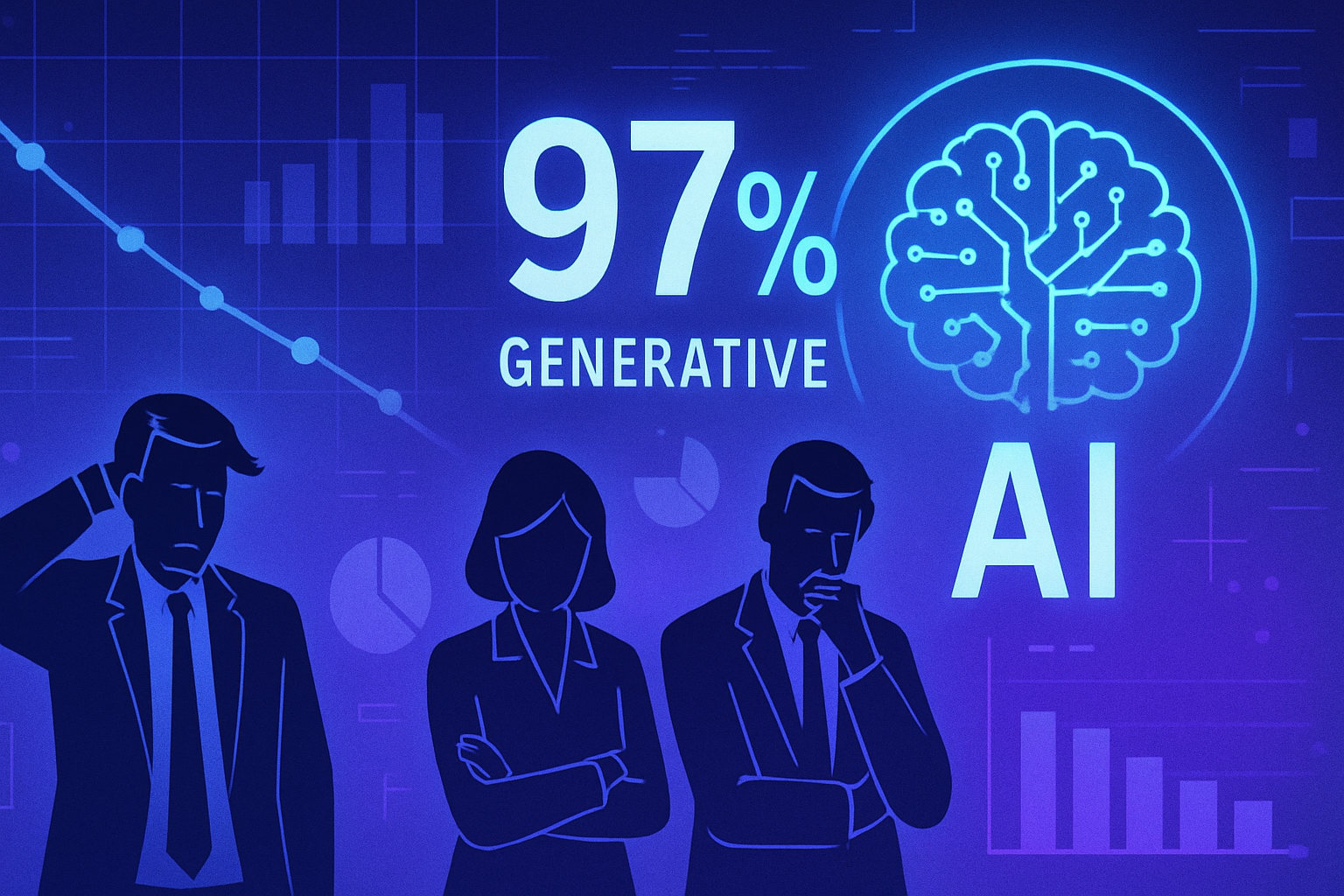Trump’s AI Ambitions May Face an Obstacle: Europe’s Influence
The arena of artificial intelligence is becoming a battleground where power and innovation are contested. European influence on technological regulation is emerging as a major challenge for the United States. Trump’s aspirations for AI require a bold strategy, caught in a vise by stringent Western standards. The quest for digital independence faces institutional and ethical barriers erected by Europe. The rapid evolution of this technology promises to affect the balance of global power, raising crucial questions about sovereignty and competitiveness.
Trump’s AI Ambitions
Donald Trump has always shown a marked interest in technological innovation, particularly concerning artificial intelligence (AI). His administration has frequently emphasized the need to accelerate AI development to maintain the United States’ competitiveness on the world stage. Recent proposals indicate his intention to establish a legislative framework favorable to AI, conducive to the emergence of new start-ups and encouraging tech giants to invest.
European Challenges to These Ambitions
Trump’s ambitions, however, risk colliding with Europe’s growing influence in the field of AI. The European Union has taken significant steps to regulate the use of artificial intelligence, emphasizing the need for ethical standards and data protections. These initiatives could prove burdensome for American companies, contributing to the divergence between U.S. and European regulations.
Strict Regulation in Europe
Europe has recently adopted regulations that impose strict requirements on the development and implementation of AI-related technologies. The goal of these regulations is to ensure user safety and avoid abuses related to AI applications. The AI Regulation, which is set to come into effect soon, imposes transparency on algorithms and accountability for designers, a framework that Trump seems less inclined to adopt.
An Overview of American Policies
Trump’s discourse on AI combines innovation and the preservation of American values. He has outlined his action plan, providing insight into future initiatives, while criticizing approaches deemed too restrictive developed by blocs like the EU. Trump primarily wants innovation to flourish without bureaucratic obstacles, arguing that this could harm American competitiveness in the global market.
Economic and Strategic Implications
Delays caused by strict regulations could harm the development of AI technologies in the United States. Influential companies may hesitate to invest heavily for fear of not meeting future standards imposed by regulators. Such a situation risks creating a competitive disadvantage for the United States, particularly against the backdrop of less stringent nations like China.
Response from Industry Stakeholders
Industry leaders in the technology sector are expressing concerns. They warn that tensions between the two sides of the Atlantic could slow the rapid evolution of AI. Moreover, some economic actors recommend constructive dialogue between the Trump administration and the European Union. This collaboration could facilitate the development of standards that account for the needs of both sides. Establishing such a framework could offer mutual benefits to the technology sectors of both continents.
Conclusion on the Future of AI under Trump
Trump’s desire to emphasize regulatory agility will likely clash with Europe’s rigidity concerning AI regulation. The tensions that are emerging could influence not only technological innovation but also transatlantic economic relations. The divergent approaches regarding AI could have long-term repercussions on the United States’ position in this critical sector.
Frequently Asked Questions
What are Trump’s main ambitions regarding artificial intelligence?
Trump’s ambitions include accelerating American technological development in AI, primarily to enhance the economic and military competitiveness of the United States.
How could European influence affect Trump’s ambitions regarding AI?
European influence could manifest through strict AI regulations that may hinder American innovation and create a competitive disadvantage for American companies in the global market.
What specific challenges might Trump face due to European regulations on AI?
Trump might face challenges such as the need to comply with stricter safety and privacy standards, which could slow progress and increase costs for American companies.
What role does collaboration between the United States and Europe play in AI development?
Collaboration could allow for the sharing of resources and knowledge, but it could also involve compromises on ethical and regulatory aspects of AI.
How might Europe’s ethical concerns influence AI developed in the United States?
Europe’s ethical concerns could prompt American companies to adopt more responsible AI practices to avoid sanctions or trade barriers in the European market.
What strategies might Trump adopt to overcome European influence on AI?
Trump could promote an independent vision of AI by fostering domestic investment and supporting internal and bilateral technology partnerships aimed at minimizing European impact.
How does the intensifying global competition in AI impact U.S.-European relations?
The intensifying global competition could amplify economic and political tensions, pushing both regions to adopt more protectionist positions regarding their own technologies and markets.
What are the potential consequences of an American delay in AI compared to Europe?
A delay could mean a loss of technological leadership, a weakening of military capabilities, and increased dependency on European technological solutions, which could affect national security.
How can American companies prepare for European AI regulations?
American companies should carefully study European regulatory frameworks and adapt their practices accordingly, particularly by investing in solutions compliant with data protection standards.
What are the advantages and disadvantages of European AI regulation for the United States?
Advantages could include high-quality standards, while disadvantages include reduced agility and innovation of American companies under regulatory pressure.






